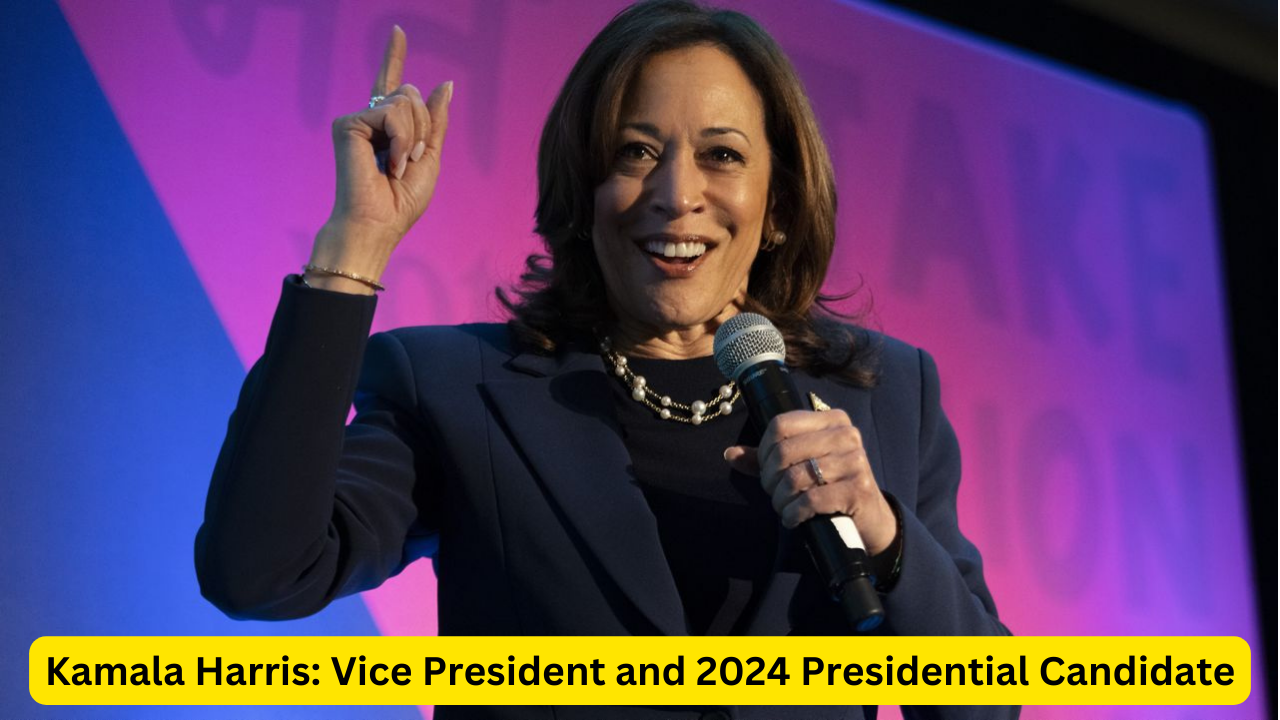Introduction
Kamala Harris, the Vice President of the United States, has emerged as a prominent figure in the political landscape, especially with President Joe Biden’s recent endorsement for the 2024 presidential election. As the first female, first Black, and first South Asian Vice President, Kamala Harris’s journey is a significant milestone in American history. This article delves into her background, achievements, and the implications of her candidacy for the future of the United States.
Early Life and Education
Born on October 20, 1964, in Oakland, California, Kamala Devi Harris is the daughter of Shyamala Gopalan, a cancer researcher from India, and Donald Harris, an economist from Jamaica. Harris grew up in a diverse environment that shaped her worldview. She attended Howard University, a historically Black university, where she earned a degree in political science and economics. She later obtained her law degree from the University of California, Hastings College of the Law.
Career in Law and Politics
Kamala Harris began her career as a deputy district attorney in Alameda County, California, where she gained a reputation for being tough on crime. In 2003, she was elected as the District Attorney of San Francisco, becoming the first woman and the first person of color to hold the position. Her tenure was marked by innovative programs aimed at reducing recidivism and supporting reentry for former offenders.
In 2010, Harris was elected as the Attorney General of California. During her two terms, she focused on issues such as foreclosure crisis, privacy rights, and criminal justice reform. Her office secured a significant settlement for California homeowners during the mortgage crisis and advanced policies on environmental protection and technology.
Path to the Vice Presidency
Harris’s ascent to national politics began with her election to the U.S. Senate in 2016, representing California. As a senator, she served on several committees, including the Judiciary, Intelligence, and Homeland Security and Governmental Affairs. Her rigorous questioning during Senate hearings, particularly of Supreme Court nominees, gained her national recognition.
In 2020, Joe Biden selected Kamala Harris as his running mate, making her the first woman of color on a major party’s presidential ticket. The Biden-Harris ticket won the election, and Harris was sworn in as Vice President on January 20, 2021.
Vice Presidential Tenure
As Vice President, Kamala Harris has played a crucial role in the Biden administration. She has been a key advisor to President Biden and has spearheaded several initiatives. Notably, she has been tasked with addressing the root causes of migration from Central America, advocating for voting rights, and leading efforts to expand broadband access and small business support.
Harris has also focused on public health and economic recovery during the COVID-19 pandemic. She has worked to promote vaccine distribution and has supported legislative efforts for economic relief packages. Her leadership in these areas highlights her commitment to addressing both immediate and long-term challenges facing the country.
2024 Presidential Candidacy
With President Joe Biden announcing his decision not to seek re-election and endorsing Kamala Harris, the political spotlight is firmly on her. Harris’s candidacy is historic and significant for several reasons. She embodies a progressive vision for America, advocating for policies that promote social justice, economic equity, and environmental sustainability.
Policy Platforms
Healthcare Reform
Kamala Harris has consistently advocated for comprehensive healthcare reform. She supports expanding access to healthcare and reducing costs for Americans. Her plan includes strengthening the Affordable Care Act and exploring options for a public healthcare option.
Economic Equity
Economic policies under Harris aim to address income inequality and support working families. She advocates for raising the minimum wage, expanding tax credits for low- and middle-income families, and investing in job training and education programs. Her focus is on creating an economy that works for everyone, not just the wealthy.
Climate Change and Environmental Justice
Environmental policies are a cornerstone of Harris’s platform. She supports the Green New Deal and has called for substantial investments in renewable energy, green infrastructure, and climate resilience. Harris emphasizes the importance of addressing environmental justice, ensuring that marginalized communities are protected from environmental hazards.
Criminal Justice Reform
With a background as a prosecutor and Attorney General, Harris is well-versed in the complexities of the criminal justice system. She advocates for reforms that address systemic racism, reduce incarceration rates, and promote rehabilitation and reentry programs. Her approach aims to create a fair and equitable justice system.
Immigration Reform
Kamala Harris supports comprehensive immigration reform that includes a pathway to citizenship for undocumented immigrants, protection for DREAMers, and policies that address the root causes of migration. Her approach is rooted in human rights and economic considerations, aiming to create a fair and humane immigration system.
Implications of a Harris Presidency
A Kamala Harris presidency would mark a significant shift in American politics. Her historic candidacy represents a break from traditional political norms and offers a progressive vision for the future. Harris’s policies focus on inclusivity, equity, and sustainability, aiming to address the pressing issues of our time.
International Relations
On the global stage, Harris is expected to continue the Biden administration’s focus on rebuilding alliances and addressing global challenges such as climate change and international security. Her experience in the Senate and as Vice President has prepared her to navigate complex international issues and promote American interests abroad.
Social and Cultural Impact
Harris’s presidency would be a powerful symbol of progress in terms of gender and racial equality. It would inspire a new generation of leaders and reinforce the idea that diversity and inclusion are fundamental to the strength and resilience of the nation.
Conclusion
Kamala Harris’s journey from Oakland to the Vice Presidency is a testament to her resilience, dedication, and vision for a better America. As she steps into the role of a presidential candidate, her policies and leadership will shape the future of the nation. The 2024 election is poised to be a pivotal moment in American history, with Harris at the forefront of a transformative political movement.
